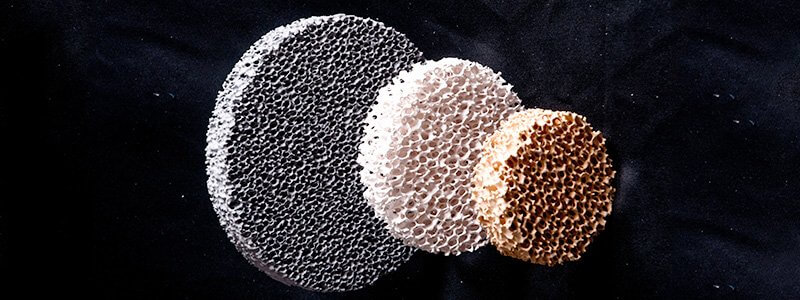The manufacturer of ceramic foam filter is a prime example of dedication, innovation, and excellence in the field of manufacturing. Ceramic foam filters are highly efficient, reliable, and cost-effective tools used in various manufacturing processes, including casting, refining, and purifying metals. They have revolutionized the way manufacturers produce high-quality products with minimal waste and maximum productivity.
The manufacturer of ceramic foam filters is committed to delivering products that exceed customer expectations by maintaining superior quality, continuously improving their manufacturing processes, and investing in advanced technology and research. Their expert engineers, technicians, and quality control professionals work tirelessly to ensure that every ceramic foam filter meets stringent quality standards and performs optimally under any condition and environment.

Ceramic foam filters are composed of various types of ceramic materials, including silicon carbide, alumina, zirconia, and other refractory oxides. The filters are highly porous, with interconnected channels and pores that trap impurities and allow for the passage of molten metals. The filters come in different sizes, shapes, and configurations, depending on the specific application requirements.
Comparison between Feseco and Lanik’s ceramic foam filters
Among the various types of ceramic foam filters available in the market, two of the most commonly used filters are Feseco and Lanik’s ceramic foam filters. While both filters have similar characteristics, they also have some differences that make them suitable for specific applications.
Feseco ceramic foam filters are known for their high porosity, which allows them to capture and remove impurities from molten metal effectively. The porous structure of Feseco filters also helps to evenly distribute the flow of metal, resulting in better filling and solidification of castings. These filters can withstand temperatures up to 1600 degrees Celsius, making them an excellent choice for casting high-temperature metals such as steel and iron.
On the other hand, Lanik’s ceramic foam filters are known for their superior strength and durability. They offer excellent resistance to thermal shock, which is critical in applications that involve rapid temperature changes, such as aluminum casting. Lanik filters also have a unique open-cell structure, which allows for greater flow and less turbulence, resulting in higher yields and a more uniform filling of molds.
Feseco and Lanik’s ceramic foam filters have unique benefits and advantages, and the filter choice ultimately depends on the specific casting application. However, one thing is sure: the use of ceramic foam filters can lead to improved quality, reduced defects, and increased efficiency in metal casting. The availability of these advanced filters makes casting a more reliable and efficient process, leading to the manufacture of higher-quality products.
In conclusion, the comparison of Feseco and Lanik’s ceramic foam filters is no doubt an intriguing topic for those involved in metal casting. Although both filters have different structural and thermal properties, they both are able to provide excellent filtration and flow control of molten metals. With advancing technology and innovation, there is no doubt that we will continue to see more and more advanced ceramic foam filters in the future, making metal casting an even more efficient and precise process.


